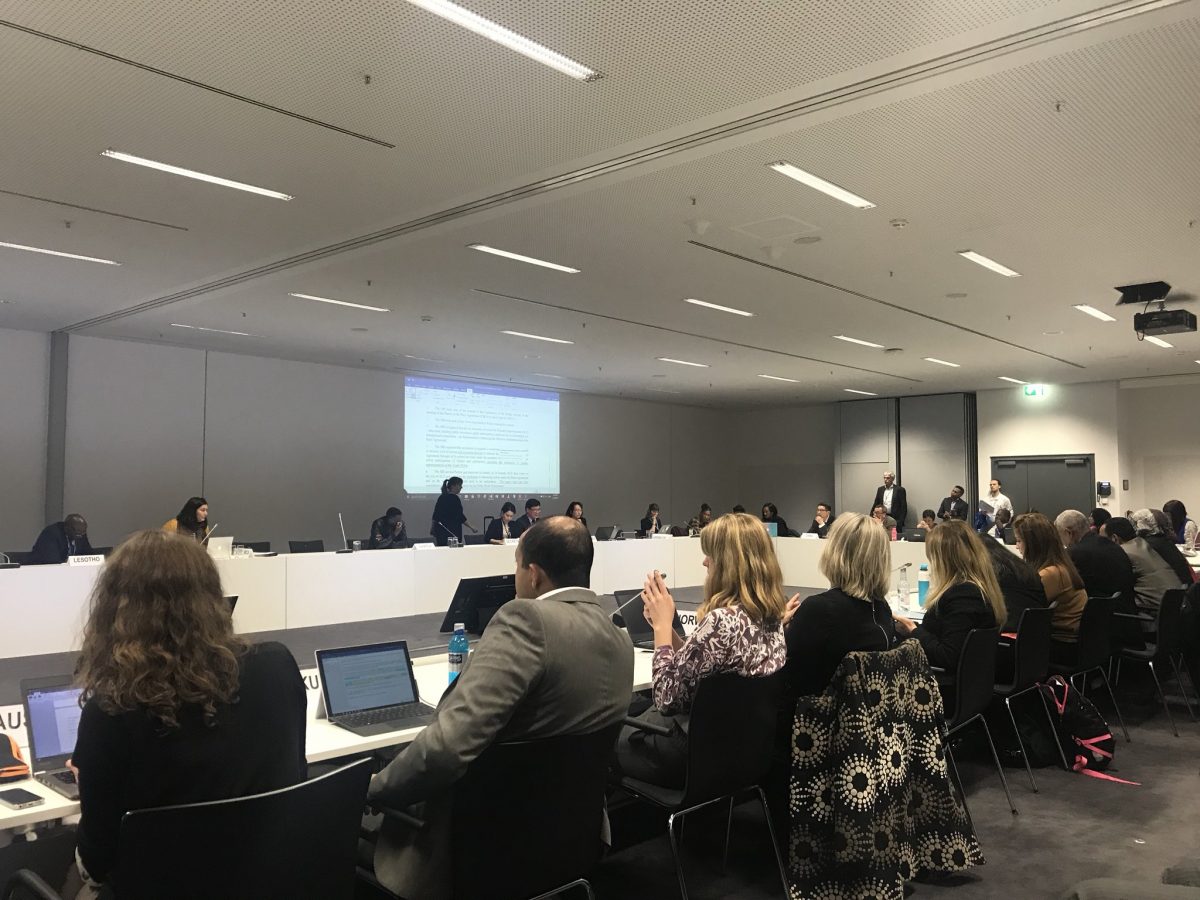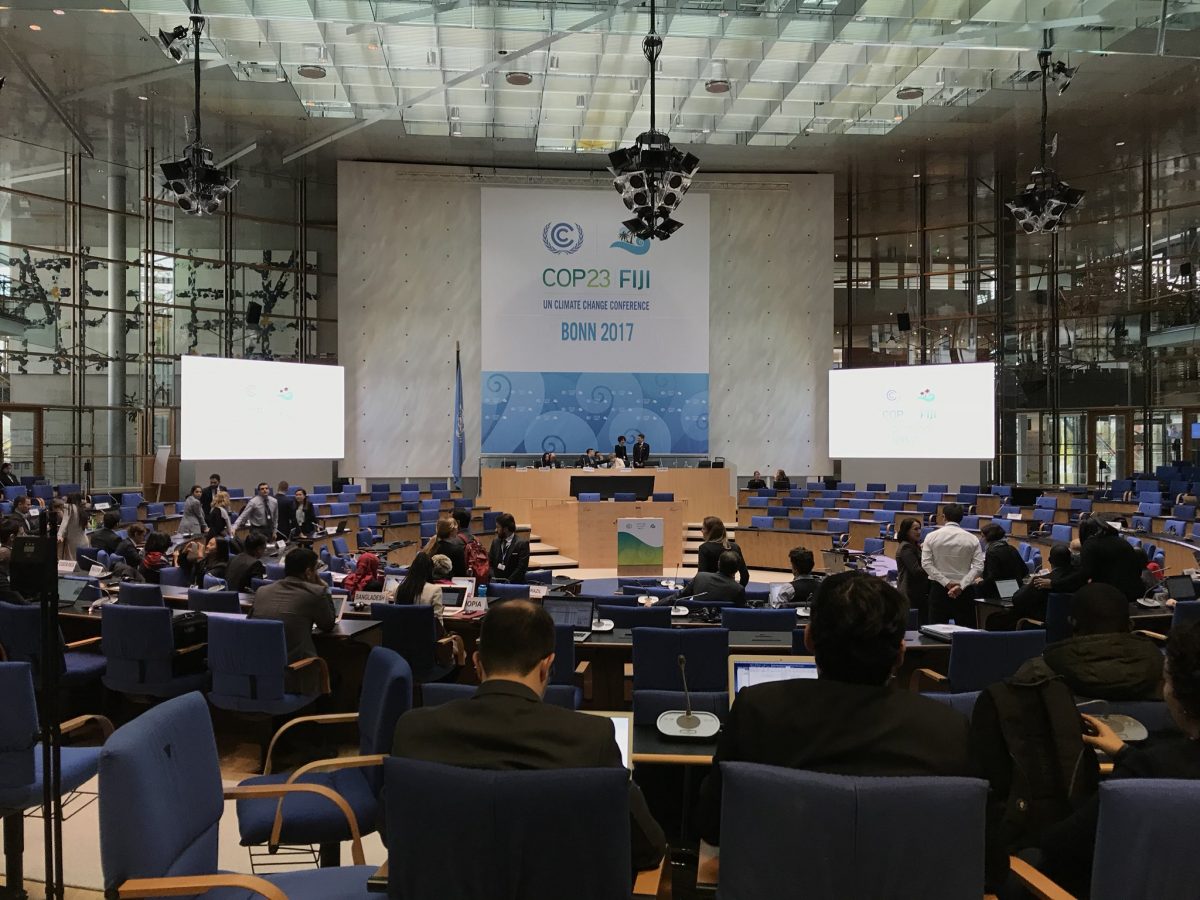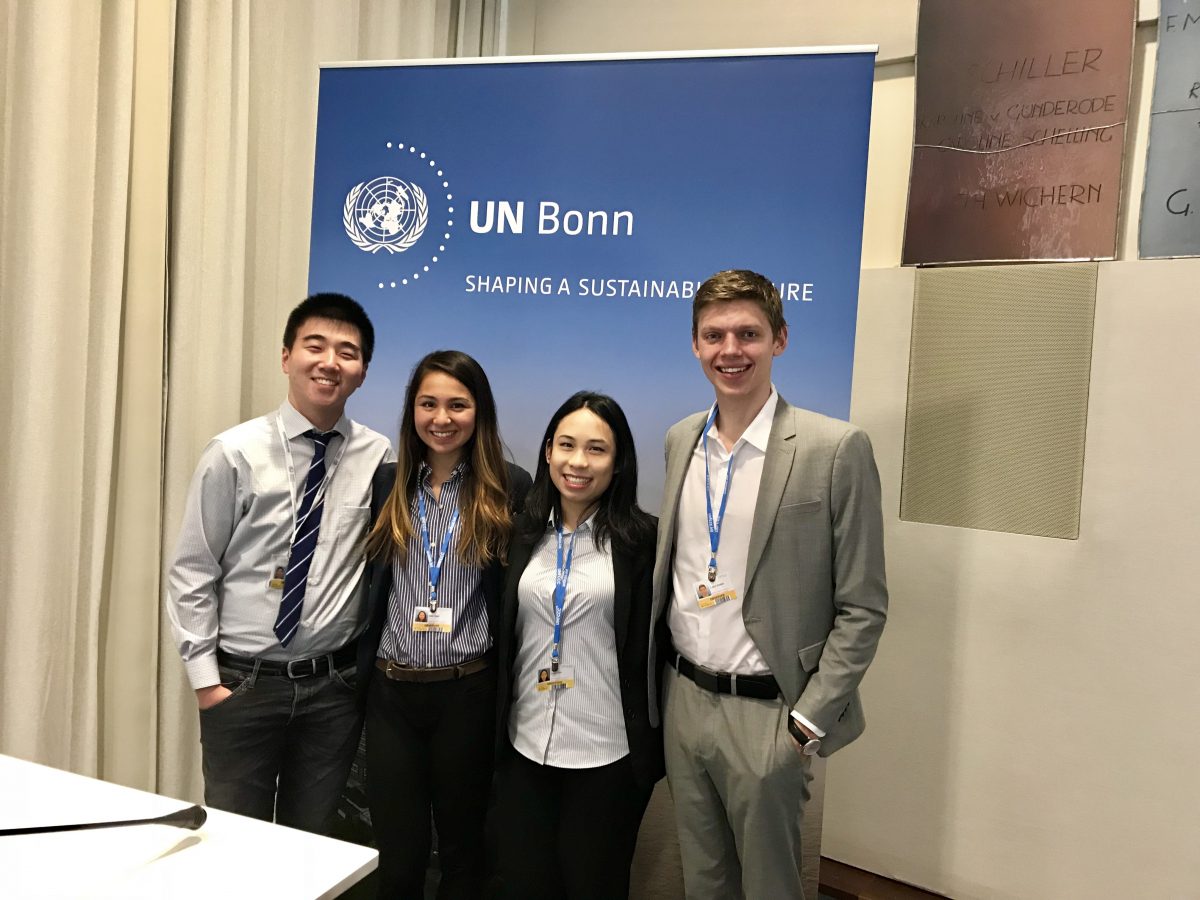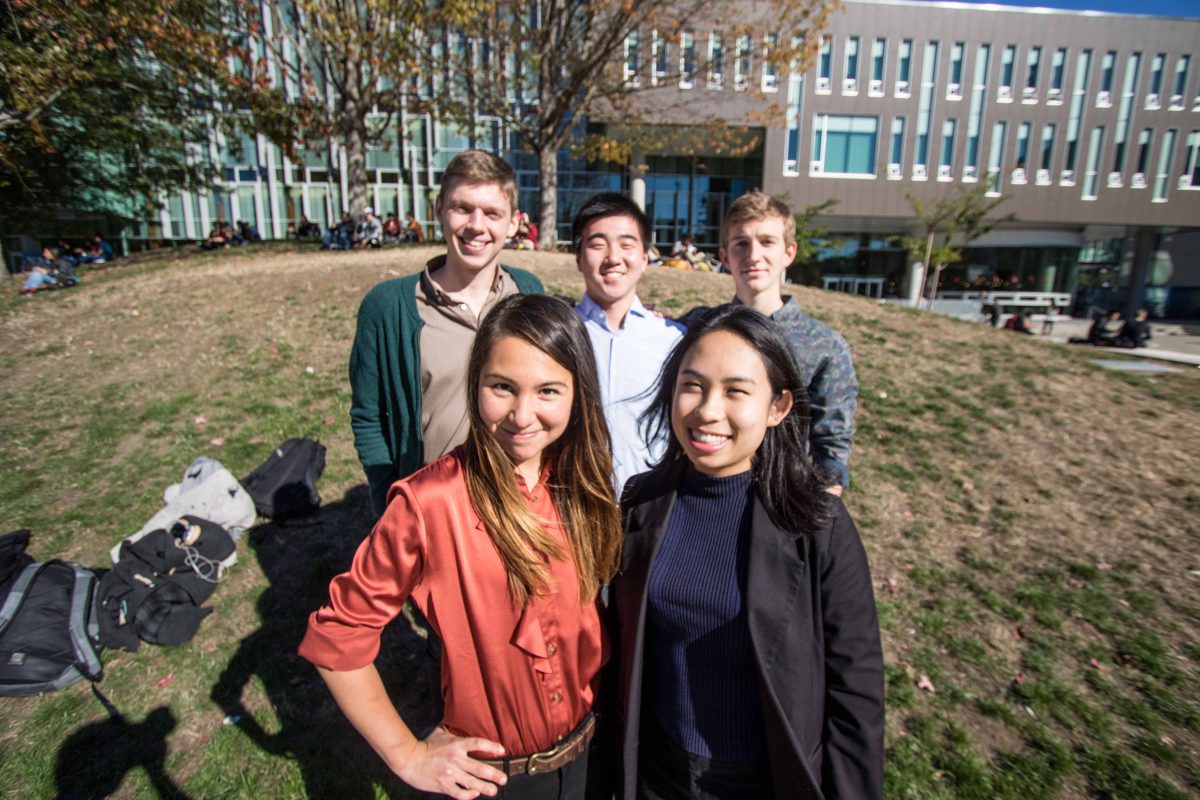

On the first day of COP23, Parties (countries) to the Paris Agreement gathered at the Ad Hoc Working Group on the Paris Agreement (APA) roundtable to discuss the further guidance on the mitigation section of the Paris Agreement on:
- Features of nationally determined contributions (NDC) – the technical points that are examined during the global stocktake (GST)
- Information to facilitate clarity, transparency and understanding of NDC – the information Parties are mandated to supply to the Convention (like
- Accounting for Parties’ NDCs
Since it is an open roundtable discussion on the opinion of each Party on these items, Keila and I sat in on the first two discussion points and listened in on major country groups’ submissions to the co-chairs of the APA.
The co-chairs of the APA posed the following questions to stimulate discussion amongst Parties:
- What level of detail does the guidance to be agreed in 2018 need to provide, so that it is politically acceptable to all Parties, practical and, above all, useful?
- What are Parties’ views on the possibility of further improving the guidance based on experience gained?
- What would be the value of listing features in the guidance, and how could it best be realized?
- Is elaboration of some of these features necessary, and if so, how would it assist Parties in implementing the provisions of the Paris Agreement?
- What guidance on information could assist Parties in improving the clarity, transparency and understanding of their NDCs over time and how specific should it be?
- How could this guidance be developed so that it takes into account the diversity of nationally determined contributions, different national circumstances and capacities of Parties in line with the Paris Agreement?
All major Party Groups (G77-China, ‘Iran and the like-minded developing states’, the EU, the African Group, the Umbrella Group) have stressed the importance of the characteristic of “nationally determine” of the Paris Agreement. They reiterated that it is crucial for all Parties and the Secretariat to recognize and respect this principle – that would entail countries setting their own features and information list based on national circumstances instead of an unified list.
Almost all Parties present at the roundtable have voiced against a legally-binding (‘prescriptive’) features and information guideline. They argue that it would undermine the notion of a ‘nationally determined.’ Instead, Parties proposed a party-driven, voluntary, and non-prescriptive guiding principle for the agenda items.
China and other developing countries (G77-China) and Iran stressed, once again, that developed countries have an obligation to support developing countries in areas such as mitigation, adaptation (specifically the adaptation fund), capacity-building, financial support, and technological transfer. It is not acceptable that developing countries are asked to submit more information and features more frequently than the developed countries. India brought to the floor that these information and features guideline must be politically acceptable. Without this, there is no point moving forward with any agenda.
The EU said that it is about building trust and confidence in each other’s transparency framework and data integrity while taking stock of the NDC. It echoed other Party Groups’ submission that the negotiation of the agenda item should stick to the 2018 deadline, but considering the national circumstances and the complexity of certain items, the Secretariat should allow postponing the deadline if it is needed.
Throughout the roundtable, the Canadian negotiator did not make any submission on behalf of Canada. It is understandable since Canada is a member of the Umbrella Group, chaired by Australia, and thus does not have to make an oral submission to the APA. However, the Canadian delegation did intervene on one issue: which paragraph of the Paris Agreement governs the features list?
There are two options.
The first, Parties may choose Article 3 of the Paris Agreement which reads:
As nationally determined contributions to the global response to climate change, all Parties are to undertake and communicate ambitious efforts as defined in Articles 4, 7, 9, 10, 11 and 13 with the view to achieving the purpose of this Agreement as set out in Article 2. The efforts of all Parties will represent a progression over time, while recognizing the need to support developing country Parties for the effective implementation of this Agreement.
Well, what does this mean? Article 4 sets out the basic rules around the NDC and its reporting, while 7, 9, 10, 11, and 13 all delve into different issues: adaptation, developing countries’ support, long-term vision for technological transfer, capacity-building, and the transparency framework, respectively.
If the APA chooses to adopt Article 3 as the guiding article on the guiding list, then it would mean that Parties need to consider all of the above mentioned aspects of climate action. If the APA chooses Article 4, then Parties don’t really need to worry about all the “complex and difficult [topics].”
Canada stressed that it does not recognize Article 3 as the guiding article and has reiterated itself that it would not allow any re-negotiation on NDC guiding article. Well, the Canadian negotiator said this in a more diplomatic way:
We would like to remind certain Parties that it has long been established that we are looking at Article 4 as the dominant governing article, and not 3… It would undermine the integrity of the negotiations done before and slow the APA progress.





